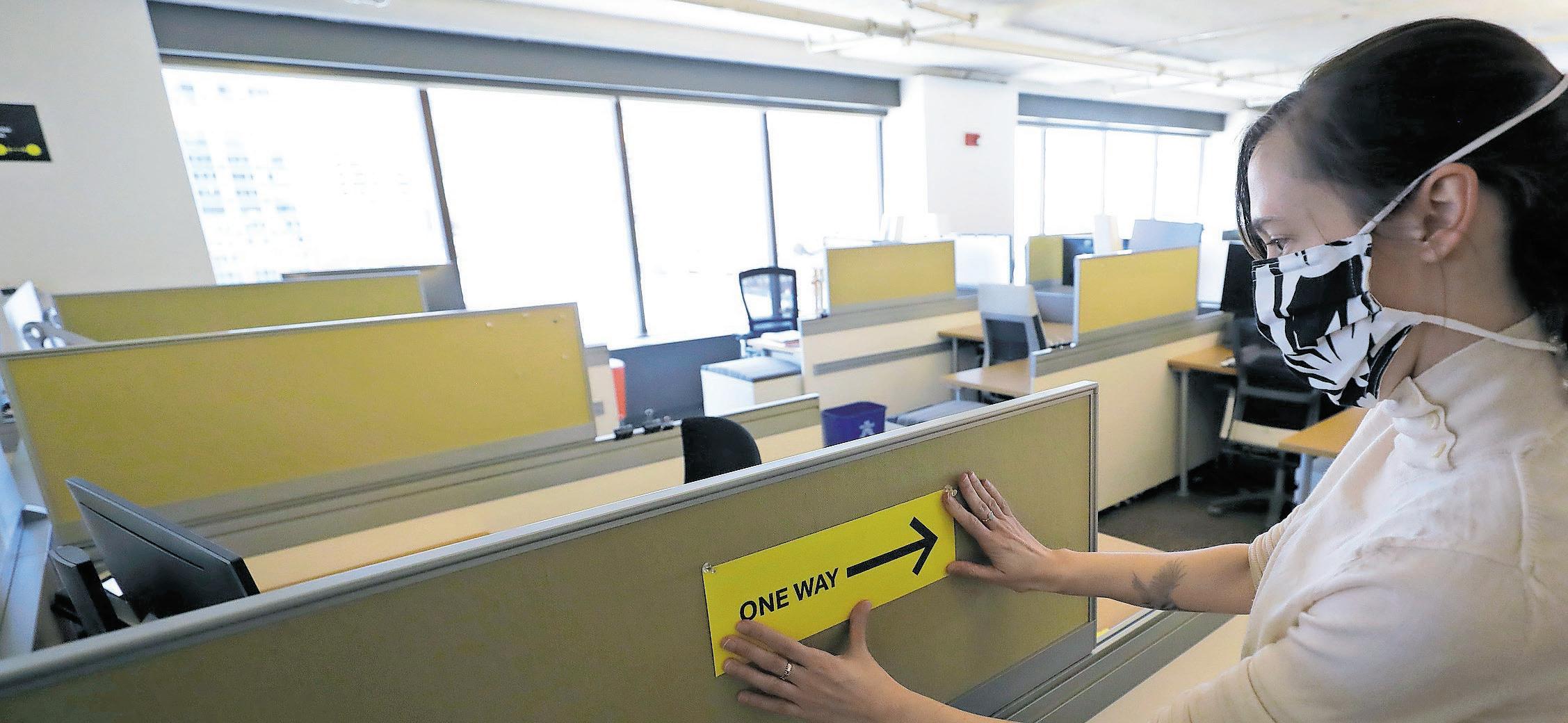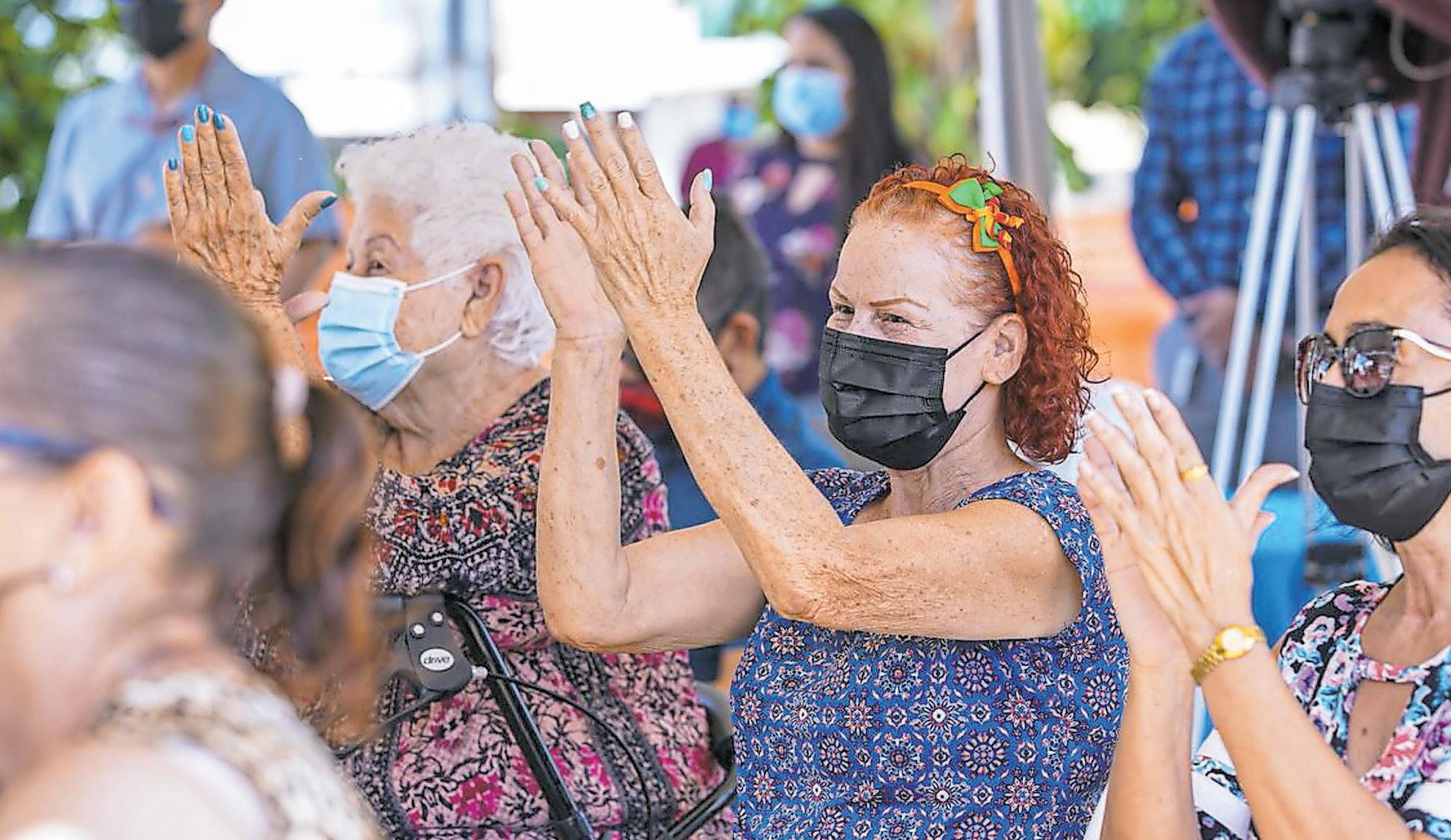
8 minute read
New Labor reform iN the works
The cost of doing business will continue to rise in Puerto Rico with the new Labor Reform measure, says private sector leaders. >AP Photo/Steven Senne
Governor Rejects Double Overtime Pay and Eliminating ‘Flextime’
Advertisement
Private sector raises ‘red flag’ warnings on new labor reform
Rosario Fajardo
rfajardo@wjournal.com @RosarioWJournal
The Puerto Rico House and Senate are contemplating amendments to the 2017 Labor Reform Law, which include substantial changes that would affect the private sector. To that end, Gov. Pedro Pierluisi sent a letter over the weekend to the heads of both legislative bodies in which he listed various aspects of the new Labor Reform effort that he believes should be reviewed so that they are tempered with “the current reality of the labor market.”
He objected to two proposals: double pay for overtime and eliminating “flextime,” which he said has been particularly beneficial for many workers during the coronavirus pandemic. The first executive mentioned that he seeks to establish a consensus on the changes proposed by the legislative piece so that it can count on his signature. Several private sector leaders have expressed concerns about the legislative proposals, saying they would be detrimental to economic development. “We cannot keep changing labor laws constantly. Maintaining a pattern of continuous changes destabilizes the economy at a time when we are recovering after the impact of the pandemic. We want to be an attraction for more companies to invest in our Island and for more people to join the working force,” said Iván Báez, president of the Retail Trade Association.
“It is fatal to pass labor legislation independently, piecemeal, without a joint impact analysis. The cost of fringe benefits are based on wages and the Legislature just approved increases without due analysis,” echoed Manuel Reyes, vice president of the Food Marketing, Industry and Distribution Chamber.
“We are surprised by these labor changes, whereby the opinion of the country’s productive sector has not been taken into consideration, at a time when we are recovering due to the effects of the pandemic and especially with a government that is bankrupt,” said the president of the Chamber of Commerce, Luis Gierbolini.
- Luis Gierbolini, Chamber of Commerce president
Pierluisi explains his position
In his missive, Pierluisi mentioned that a sixmonth probationary period is more reasonable for both exempt and non-exempt employees than the automatic nine-month probationary period.” This provides uniformity to the administration of human resources and therefore, an amendment to this end would have my endorsement,” the governor said in written statements.
Regarding the Christmas bonus which is regulated in accordance with Puerto Rico law, Pierluisi emphasized that he considers it prudent that the Labor Reform be amended to standardize the requirement, applicable to all private sector employees, that they are entitled to receive the bonus for working at least 700 hours during the year in question.
It should be noted that, currently, Puerto Rico’s labor laws require that employees hired before Jan. 26, 2017 work at least 700 hours a year in order to be entitled to the Christmas bonus. However, employees hired after that date have to work at least 1,350 hours to be entitled to Christmas bonus.
Meanwhile, the governor stressed the importance of all workers having an adequate period of rest. “I support the amendment of the Labor Reform to decrease the requirement of hours worked per month to be able to accumulate vacation and sick leave. This requirement must be set again at 115 hours per month. Along the same lines, I support the amendment of the Labor Reform to establish that workers hired as of Jan. 26, 2017 can also accumulate one and one-fourth days of vacation for each month worked,” he added.
In his letter to the legislative heads, Pierluisi mentioned that the amendments aimed at increasing the current pay of time and a half to double pay for working in excess of eight hours a day, on rest days and during the meal period, could be detrimental to small and medium-sized businesses, so these changes do not have his endorsement. On the other hand, the governor also expressed that he does not support the elimination of provisions that allow for flextime arrangements for workers. “My administration has always sought the balance that is required by promoting changes to strengthen our workforce and in turn, ensuring that the commercial sector, especially small and medium-sized merchants, can continue to create and maintain jobs to contribute to our economic growth,” Pierluisi said.
Access to Supplemental Security Income is Positive for Local Economy
Would reduce the high poverty rate on the island
Maricarmen Rivera Sánchez mrivera@elvocero.com @mriverasanchez
The possibility of Puerto Rico having access to Supplementary Security Income (SSI) benefits, as of 2024, is positive for the island’s economy and would help reduce the number of people who are living in poverty. According to economist José Caraballo Cueto, the SSI program will help the neediest sectors. “It seems to me that it is good news because the SSI would reduce the poverty rate in Puerto Rico by seven percentage points,” he said.
“This program is for poor older adults, poor disabled people, and poor children. As the stipend is much greater than PAN (Spanish acronym for the Nutritional Assistance Program) benefits, it would take many people who are now close to the poverty level and move them above the poverty level. They are populations that need it,” Caraballo added. For the economist, another positive aspect of President Biden’s budget blueprint and social agenda framework, under the Build Back
Better Act, which is now being debated by U.S. lawmakers, is the employment credit in the manufacturing sector.
“Although it is true that it will not generate a return of manufacturing as we saw with Section 936, it does help so that the industries here in [Puerto Rico] do not continue to leave. This helps preserve Puerto Rico’s industrial base, which are jobs that do not compete with other jobs in the local sector,” he explained.
Caraballo pointed out that Biden’s framework on social welfare issues, which includes permanent funding for Medicaid in the U.S. territories, including Puerto Rico, came just as the island is preparing for the approval of the government’s Plan of Adjustment in federal court.
“The assignment to Medicaid gives us relief because the money that we are going to use for the debt would come from the contributions we now make for Mi Salud. They are funds that come in to replace that and can be used to pay off the debt. That alleviates a bit the threat of a second default,” he said. Biden’s Build Back Better Act must pass the U.S.
House of Representatives and U.S. Senate before it can be signed by the president.
Should pass in the U.S. House and Senate
For her part, Carmen Feliciano, director of the Puerto Rico Federal Affairs Administration (PRFAA) cited a study by the Center for the New Economy to indicate that this benefit could reach almost half a million people on the island. She explained that the bill could go to a vote in Congress in the coming week.
“For it to move in the House, the Senate president has to give assurance that we have the 50 Democratic senators supporting the measure in the Senate. As it is a budgetary measure, it has to start in the House. What is expected is that once it is approved in the House, it will be voted and passed in the Senate,” she said. Feliciano also indicated that, although the SSI money would not be received in Puerto Rico until 2024, the measure will imply immediate allocations in certain areas, such as an increase in funds for the Medicaid program, with which the government’s health plan for the medically indigent is paid.
“That is for this fiscal year and it would be permanent. We were waiting for that contribution in Puerto Rico to drop to 55 percent as of December 3, but we already know that this will not happen. It will remain at 76 percent,” she said. Health Secretary Carlos Mellado also pointed out that the announcement of more funds for Medicaid would be a relief for the island. “There is still a long way to go, but we are happy because both the governor (Pedro Pierluisi) and I have been
In fact, visiting Washington, sitting down with members of Congress so that they understand that in Although the Puerto Rico, we do not have SSI money would access to the programs as in not be received in the rest of the nation. We don’t Puerto Rico until have the money for emergency 2024, the measure transportation, durable diabetes will imply immediate medical equipment, and adult allocations in certain vaccinations. There is an areas, such as an important need,” he said about increase in funds the money that will come to the for the Medicaid island. program, with which “Right away, we would have a the government’s match (in Medicaid funds) of health plan for the 76 percent and the next year it medically indigent is goes up to 80 percent. If it is not paid. approved, we would have a 50 percent match again and that is a lot of money that Puerto Rico has to put up. If the legislation is approved, it would be very positive for Puerto Rico, “he said.




